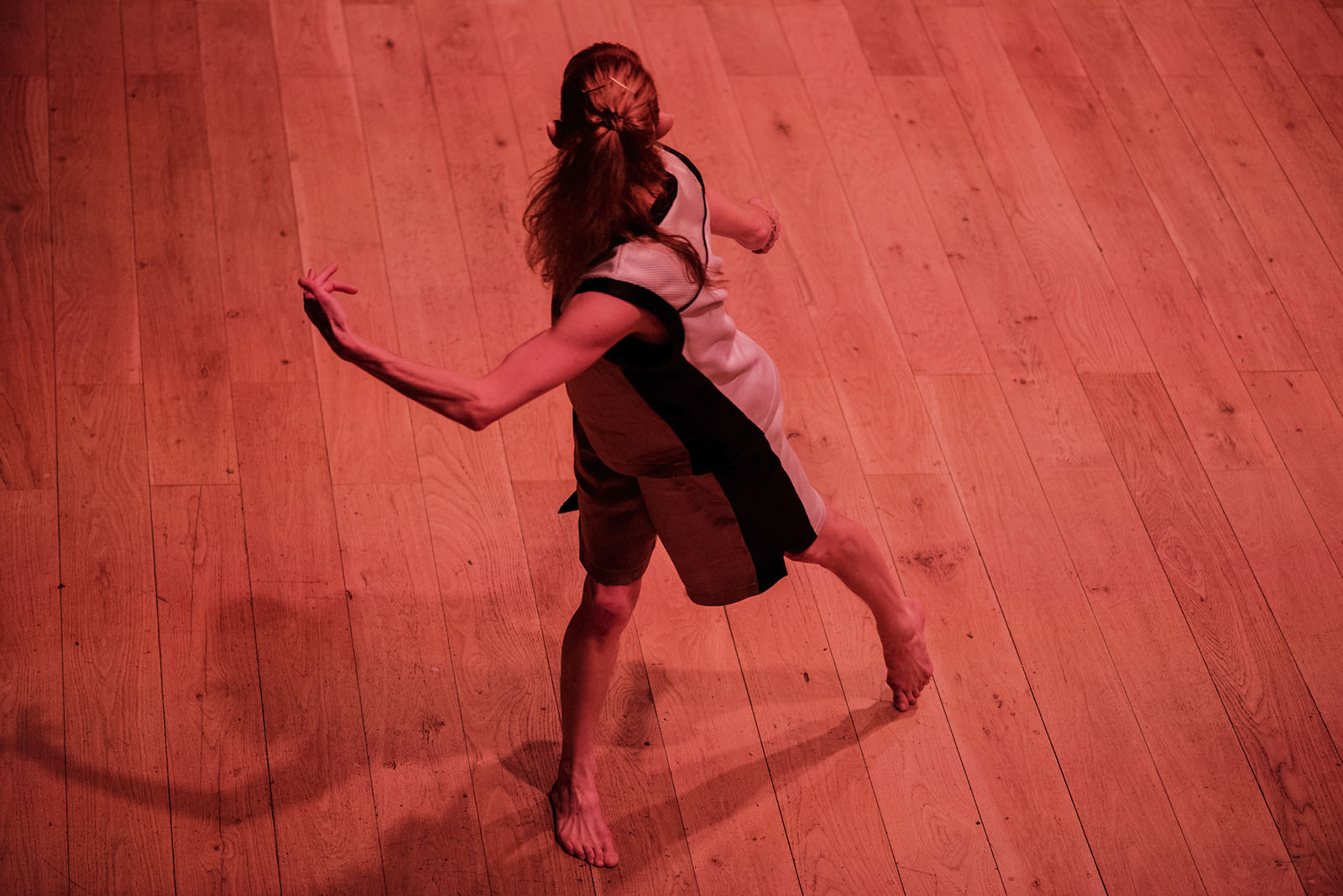Generative states of not knowing

I understand not knowing to be a constitutive and necessary ingredient of the experiential environment composed by a choreographic performance that engages (and engages with) embodied knowledge-generating capacities.
In order for it to be possible for an event of choreographic performance to facilitate the live engagement of embodied capacities for knowing and learning, I consider that a choreographic score must serve to create an environment in which the performers have room to not know everything about what they will encounter and do in advance of the moment-to-moment unfolding of the performance. In a sense, this is always already a part of the ontology of choreographic performance: insofar as it is embodied, it necessarily unfolds in a lived experiential context, the full and particular complexity of which can never be predicted in advance nor repeated in every microdetail. Different choreographic orientations, however, can choose to either play down or foreground the integral ingredient of not knowing; while always present, it can be seen as either outside of or within the choreographic work itself. My choreographic orientation is one that chooses to foreground and engage with this ingredient of not knowing and these embodied capacities for knowledge-generation, considering these as elements that are crucial aspects of meaningful potentials of the art form. I consider this to echo practices and articulations of many other choreographic artists, in particular Deborah Hay, who has quoted Bachelard to emphasise that ‘“…non-knowing is not a form of ignorance but a difficult transcendence of knowledge”’ (Hay 2016, p.11, quoting Bachelard 1994, p.xxxii).
Cognitive scientist Guy Claxton’s understanding of the embodied basis of learning and intelligence resonates strongly with this choreographic emphasis on not knowing. Learning, he writes, ‘is what you do when you don’t know what to do. Learning to learn, or the development of learning power, is getting better at knowing when, how, and what to do when you don’t know what to do’ (1999, p.11). Claxton’s definition, foregrounding the roles of doing and movement, highlights that the embodied capacity for learning is engaged within experiences of not knowing.
Sociologist and legal scholar Boaventura de Sousa Santos also emphasises the crucial role that the capacity to hold generative states of not knowing plays, in his wide-ranging analysis of how epistemological dynamics underlie struggles for global social justice and decolonisation. Santos discusses this capacity as one that is exemplified by Nicholas of Cusa, a 15th century German philosopher and theologian whose thinking on this subject Santos argues has been unduly marginalised and forgotten in the Western critical tradition. Santos describes that Cusa’s thought ‘engages in a reflection on the idea of knowledge in not knowing. The important thing is not to know, [Cusa] argues, but to know that you do not know’ (Santos 2014, p.109). Santos quotes from Cusa’s De docta ignorantia (1440) in which Cusa observes: ‘Indeed, …no greater knowledge can endow any man, even the most studious, than to discover himself supremely learned in his ignorance, which is proper to him, and he will be the more learned, the more ignorant he knows himself to be’ (Cusa 1440 in Santos 2014, p.109). From this, Santos uses the concept of ‘learned ignorance’ (following Cusa in using “learned” as an adjective) to denote a way of knowing in which the capacity for acknowledging and holding not-knowing is paramount, and he argues for the political importance of retrieving and expanding this as an epistemological practice within Western contexts.
READ MORE in Section 2 of my written thesis on Claxton and the embodied basis of knowing
READ MORE in Section 7 of my written thesis on Santos and Cusa’s learned ignorance